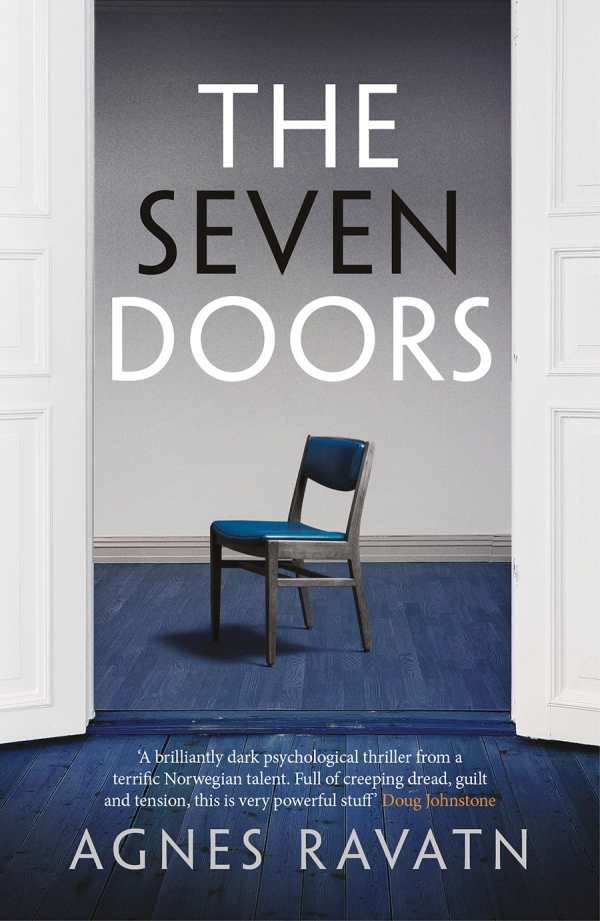The Seven Doors
In The Seven Doors, Agnes Ravatn’s sinuous, taut Nordic noir, an academic pieces together the truth about her missing tenant’s past to arrive at a devastating conclusion.
Sixty-one-year-old Nina faces the demolition of her beloved home due to light rail construction. Amid the complications of packing up her old house while hunting for a new one, Mari, a single mother and the tenant of Nina’s husband’s rental, vanishes. Plagued with guilt for having agreed to evict Mari just days prior, Nina conducts her own amateur investigation into whether Mari disappeared by choice or met with foul play.
The novel features isolated views of the fjords, simmering family rifts, and a lineup of suspects who are attributed with dark psychological motives, but its intellectual flourishes are what revitalize its familiar story of a woman in peril. These include Nina’s entertaining hubris in declaring that literary academics should be investigators and her lecture about Greek tragedy, both of which prove prophetic.
Nina’s penchant for mining texts results in a detailed explorations of the Bluebeard tale and of opera, as well as in read-alouds of Perrault’s fairy tales to her granddaughter; the latter sparks a clever parallel with her present. Freudian ideas about transference unlock a critical sequence that’s filled with suspenseful misdirection.
As Nina delves further into elusive Mari’s fragility, all while dealing with her own everyday problems, the looming, background threat of demolition becomes an apt metaphor for irrevocable change. When the book’s crescendo arrives, it floors the middle-aged sleuth, forcing an extreme choice whose aftermath is haunting.
Filled with chilling calm about people’s secrets and the cruel ruses used to mask them, The Seven Doors is an understated thriller whose bleak twists are surprising.
Reviewed by
Karen Rigby
Disclosure: This article is not an endorsement, but a review. The publisher of this book provided free copies of the book to have their book reviewed by a professional reviewer. No fee was paid by the publisher for this review. Foreword Reviews only recommends books that we love. Foreword Magazine, Inc. is disclosing this in accordance with the Federal Trade Commission’s 16 CFR, Part 255.

